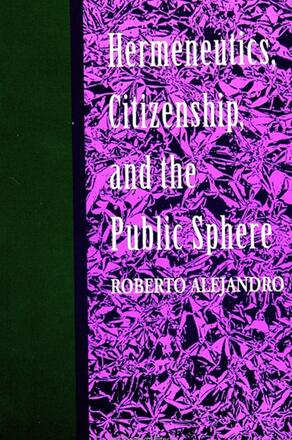
Hermeneutics, Citizenship, and the Public Sphere
Alternative formats available from:
Description
This book sheds new light on the question of democratic politics by proposing a hermeneutic conception of citizenship and the public sphere. At the same time, it presents a critique of the postmodern arguments advanced by Richard Rorty, Jean-Francois Lyotard, and Jean Baudrillard. Questioning a dominant interpretation that sees Gadamer's hermeneutics as the expression of a conservative project, Alejandro argues that it includes an important element of critique that could challenge dominant structures and practices.
Roberto Alejandro is Assistant Professor in the Department of Political Science at the University of Massachusetts, Amherst.
Reviews
"This is an important and insightful book. Alejandro fuses recent debates between liberals and communitarians and between postmodernists and their critics, as well as between Gadamer's hermeneutics and critical theory, with important literature on the notions of community and citizenship from the perspective of the broad hermeneutical tradition. This synthesis throws fresh light on the work of Dewey, Rorty, Gadamer, Habermas, Arendt, Baudrillard, and others, and makes a significant contribution to the importance of recent work on citizenship for social theory and public life. " — Robert Hollinger, Iowa State University
"Immensely useful for scholars interested in democratic theory and the impact of continental philosophy on it. The best critique of Rorty I've seen recently, and very revealing on Baudrillard. I found it very suggestive and helpful for my own work on ideology, consciousness, and democratic theory. " — Philip Green, Smith College